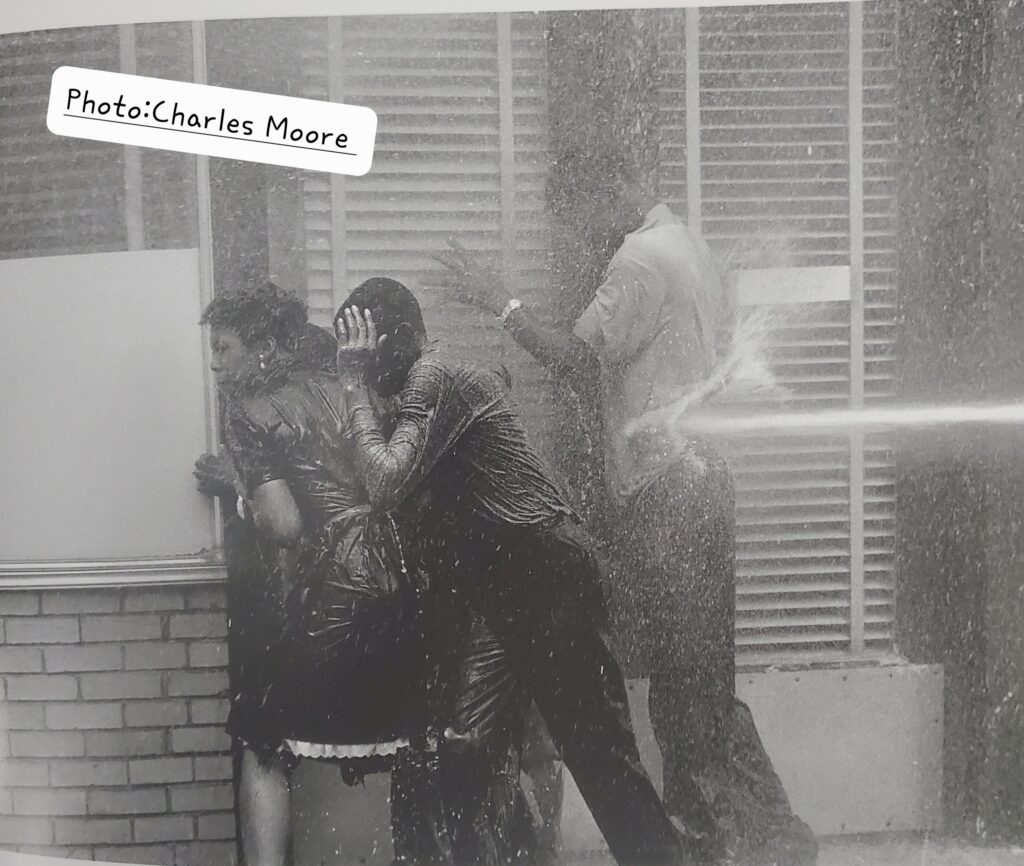I grew up in the segregated South. Dad served during WWII but was not able to vote until President Johnson signed the Voting Rights Act of 1965. It was a tough place for Black people, but it was our home.
We lived in the segregated part of town and lived under racist man-made Jim Crow laws. The entire South seemed to be in constant turmoil. My grandparents and parents were born in Mississippi. Dad’s parents migrated to Chicago when he was a child. He experienced a better way of life, but that life disappeared when he returned to Mississippi to choose a wife, our mother whom we lovingly called MaDear.
In the South, voting was for white people only. Black citizens were kept away from the polls by intimidation and fear tactics. According to the book, Powerful Days, by Charles Moore – “When civil rights leaders made voter discrimination a target, segregationists fought back with lethal force.”
Montgomery, Alabama was called the “Cradle of the Confederacy.” It was where Jefferson Davis took the office in 1861 as president of the Confederacy. It was also the birthplace of the civil rights movement.
Dr. Martin Luther King, Jr., pastor of the local Dexter Avenue Baptist Church, rose to prominence as the leader of the civil rights movement. Church bombings, assassinations, and other violence prevailed across the South. Prior to his assassination in 1963, President Kennedy called for “equal rights and opportunities” for all Americans.
In the early 1960s the University of Mississippi, also called “Ole Miss”, was a symbol of racial segregation. James Meredith, a 28 year old Air Force veteran was denied admission. Rioting resulted in deaths of two men and many more were injured.
In 1960, in Fayette
County, Tennessee outside my home town of Memphis, Black
Americans were evicted from their homes because they registered to vote. They
were forced to live in tents on a Black landowners land. This became known as “Tent
City.”
In the spring of 1963, William Moore, a white mailman from Baltimore was shot and killed in Alabama while walking to deliver a letter protesting segregation to the governor of Mississippi. After his assassination, two civil rights groups, the Congress of Racial Equality and the Student Nonviolent Coordinating Committee followed his route. Members were arrested in Alabama three days later.
The March on Washington in 1963 was organized by A.Phillip Randolph and Bayard Rustin. This march brought together many civil rights leaders, celebrities, and everyday Americans. This is where Dr. King delivered his famous, “I Have a Dream” speech. Approximately a quarter of a million people marched to demand an end to segregation, fair wages, voting rights, and civil rights protections.
The voter registration drive in Mississippi was called Mississippi Summer or Freedom Summer. In 1963, Medgar Evers, a member of the NAACP and voting advocate, was assassinated in his driveway. Voting rights activists continued to help Black residents register to vote. The form in use then asked about criminal convictions and interpretation of a section of Mississippi’s constitution. The section for Black people to interpret was lengthy. It was up to the Registrar’s sole judgement if the applicant answers correctly.
Three young civil rights workers, James Chaney from Mississippi and Andrew Goodman, and Michael Schwerner from New York was abducted and murdered by segregations. They were in Mississippi to help register Black citizens to vote.
Activist Fannie Lou Hamer was a leading advocate for Black women and men in Mississippi. She was threatened, harassed and assaulted by racists, including members of police, while trying to register and exercise her right to vote.
In Selma, Alabama the struggle for civil rights continued. The Selma to Montgomery march resulted in Bloody Sunday. Approximately 600 marchers were attacked by Alabama law enforcement on the Edmund Pettus Bridge.
In August of 1965 President Johnson signed the Voting Rights Act. The next year, the Supreme Court ruled all poll taxes unconstitutional. I was almost 12 years old.
This is a brief overview of many violent efforts made to deprive Black Americans of our civil rights. Voting gives us the power to create positive change and determine a better quality of life for our families. The more we vote, the more powerful our voices become. If it wasn’t important, do you think civil rights activists would give up their lives for this power?
Francie Mae. October 26, 2024
